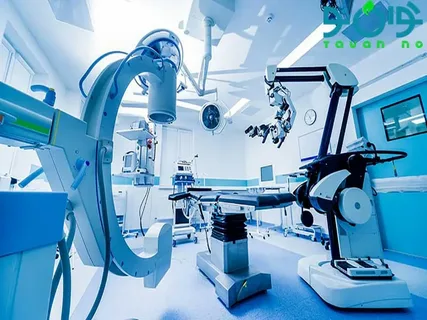In the world of healthcare manufacturing, accuracy is more than a standard—it’s a lifesaving necessity. From orthopedic implants to surgical instruments, every component must meet strict quality and safety guidelines. That’s why medical CNC machining services have become essential to producing reliable and high-performance parts for medical devices. CNC (Computer Numerical Control) technology enables manufacturers to deliver parts with extreme precision, using materials that are safe for medical applications. With the ability to support rapid prototyping, scalable production, and regulatory compliance, CNC machining plays a central role in today’s medical innovations. As the healthcare sector continues to evolve, CNC machining provides the tools and technologies that bring new ideas to life—quickly, safely, and effectively.
High Precision and Quality Control for Critical Medical Components
Tight Tolerances and Repeatable Accuracy
Medical parts need to be manufactured with incredible accuracy. Whether it’s a bone plate, spinal implant, or a diagnostic sensor housing, each part must match the exact specifications provided in the CAD design. CNC machining ensures tight tolerances, often within microns, and maintains consistency across high-volume runs. Unlike manual manufacturing, CNC machines follow programmed instructions without deviation. This repeatability is essential for medical applications, where even a minor flaw could lead to device failure or patient harm. Moreover, the use of automated toolpath optimization allows the machine to cut more efficiently while reducing vibration, which enhances dimensional stability over long production cycles.
Material Flexibility and Biocompatibility
One of CNC machining’s strengths lies in its compatibility with a wide variety of medical-grade materials. These include titanium, stainless steel, cobalt-chrome alloys, and PEEK—all of which must be biocompatible, durable, and able to withstand sterilization. CNC machines can process these tough materials efficiently while preserving surface finish and material integrity. This is crucial when producing parts that will come into contact with human tissue or fluids, as rough edges or contaminants can cause complications. Precision cutting tools and clean machining environments further ensure that the components meet industry hygiene and safety standards. CNC also enables the creation of smooth edges and surfaces that reduce friction and improve patient comfort in implantable and reusable devices.
Rapid Prototyping and Custom Solutions for Evolving Medical Needs
Fast Product Development and Time to Market
Medical technology moves quickly, especially with the demand for more advanced diagnostic and treatment solutions. CNC machining supports this fast pace by enabling rapid prototyping. Engineers can go from design to part in just a few days, allowing for quicker testing and validation. Unlike traditional manufacturing, there’s no need for custom molds or long setup processes. CNC programming can be adjusted easily, reducing delays and allowing medical device manufacturers to respond to urgent health needs or regulatory changes efficiently. This rapid development cycle is also ideal for startups and research labs, where short lead times and flexibility are critical to innovation and competitive advantage.
Personalized and Patient-Specific Devices
In modern healthcare, there is a growing trend toward personalization. CNC machining is ideal for producing custom-fit implants, surgical guides, and other components tailored to individual patient anatomy. Whether it’s a jaw reconstruction plate or a one-off orthopedic spacer, CNC systems can create complex geometries to meet unique specifications. This ability to machine custom parts without sacrificing accuracy or finish gives healthcare providers more options for improving outcomes through patient-specific care. It also reduces reliance on generalized components, which may not deliver optimal results for every case. As personalized medicine continues to grow, CNC machining will remain a driving force behind its practical implementation in clinical practice.
Partnering With the Right CNC Machining Provider
Experience With Medical Industry Standards
Choosing a CNC machining partner with medical experience is essential. Not every machine shop understands the strict compliance requirements for medical device production. The right partner will be familiar with ISO 13485 certification, FDA regulations, and documentation processes required for traceability. Working with a team that has successfully delivered medical parts ensures smoother production, fewer errors, and peace of mind throughout the entire manufacturing cycle. Experience in the medical industry also means familiarity with design for manufacturability (DFM), which helps reduce production costs while maintaining safety and effectiveness.
Advanced Equipment and Scalable Capabilities
Medical manufacturers often face fluctuating production needs. A reliable CNC machining provider should offer both small-batch and large-scale production capabilities. Using multi-axis machines, high-speed milling, and automated quality inspection tools, a strong partner can deliver complex parts at speed without compromising quality. Additionally, if the provider offers value-added services like surface finishing, ultrasonic cleaning, laser marking, or sterilization prep, it helps streamline the supply chain and reduces total turnaround time. This scalability allows medical companies to respond to product demand quickly, without the risk of delays or quality issues. Furthermore, having a partner that can scale with your business is key to long-term success in competitive markets.
Conclusion: The Foundation of Safe and Reliable Medical Manufacturing
Medical CNC machining services are not just about shaping metal—they are about delivering confidence to patients, doctors, and manufacturers alike. In a field where the smallest error can lead to life-altering consequences, CNC technology provides the accuracy, consistency, and reliability that healthcare demands. From life-saving implants to the tools used in operating rooms, CNC machining is behind the production of countless components critical to patient care. It empowers medical innovators to bring ideas from concept to reality without compromising safety or performance. By partnering with a qualified, experienced machining provider, medical manufacturers ensure that their products meet both today’s performance standards and tomorrow’s healthcare innovations. In a rapidly advancing industry, CNC machining remains the trusted backbone of medical manufacturing excellence.
